Okay, I’ll admit it! The title “The Seven Deadly Sins of Kenyan Creatives” sounds a little dramatic. Maybe even harsh. But hear me out. These so-called “sins” aren’t meant to condemn anyone. They’re just mirrors. Reflections of the things we don’t talk about enough, yet they continue to trip us up, especially in the professionalisation of fashion and the wider creative industry in Kenya.
Informality

Let’s start with this word we hear tossed around a lot: informal. In the African context, fashion is often labelled as such. But what does that even mean? According to the Oxford Dictionary, informal means relaxed, friendly, not bound by strict rules. And honestly? That’s exactly what creativity is. Fashion thrives on the unconventional. It breaks rules, flips traditions, shocks, and inspires. Creatives ’ve always been a little rebellious. That’s their sauce.
But here’s the thing: times change. And if fashion can twist and stretch with the seasons, then so must the people behind it. It’s time we separate the art from the artist, not in passion or vision, but in structure. If we want fashion in Kenya to be taken seriously, to sit at the same table with big boyzz such as tech, finance, or film, then the creatives behind it need to move with a bit more structure, discipline, and professionalism. Freedom in design shouldn’t mean chaos in execution.
Predatory Laws
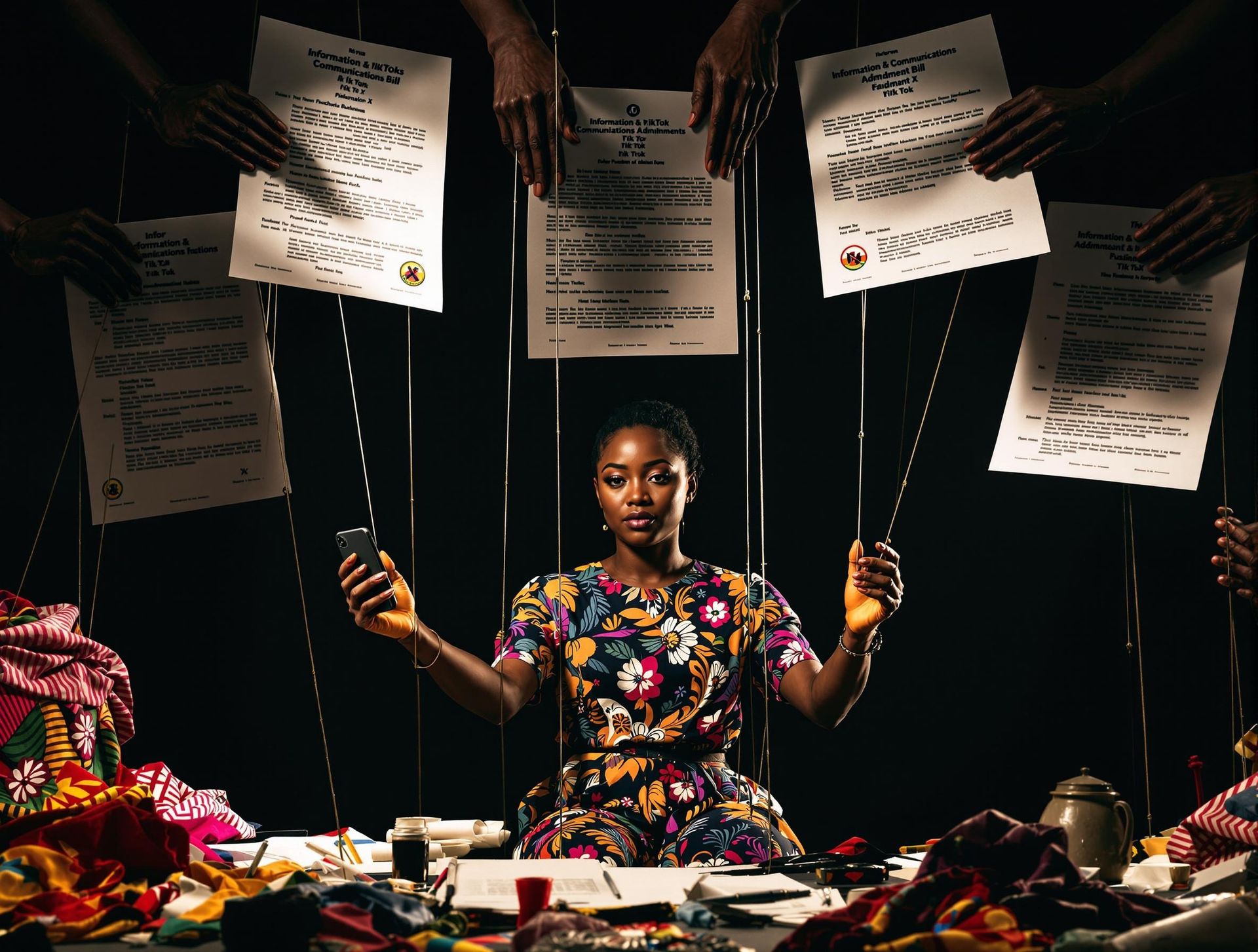
Now, don’t get me wrong. The state, too, is slowly stepping up with better IP laws to help creatives protect their work. It’s not perfect, but it’s something.
But let’s not start clapping just yet.
There’s a storm brewing and it’s coming in the form of the Information and Communications (Amendment) Bill. On the surface, it sounds great: fighting fake news, curbing hate speech, promoting online accountability. But the fine print? That’s where the wahala is.
If passed, this bill could infringe on privacy, open doors for profiling and surveillance, and slap creatives with fees and hoops just to access platforms like Instagram, TikTok, and X. And for Kenyan creatives, especially the youth, these platforms aren’t just for fun. They’re shops. They’re portfolios. They’re networking zones. They’re how many of us pay rent.
If this bill goes through as is, it won’t just stifle free speech. It will throttle the very engine driving Kenya’s creative economy. Instead of support, we get restrictions. Instead of structure, we get strangulation.
Absent representation
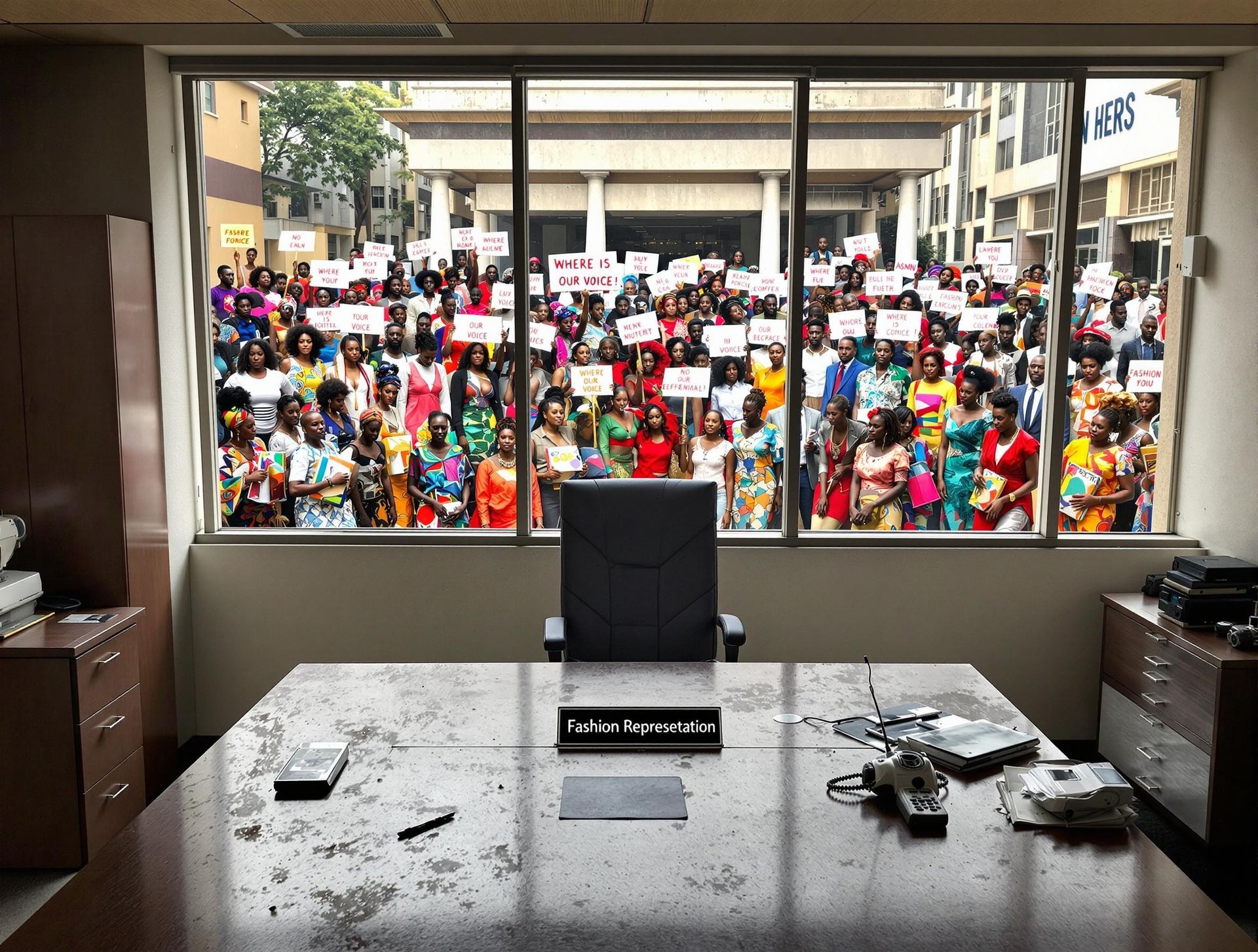
And while we’re here calling out what’s off, let’s talk about the Kenya Fashion Council. Yes, it exists. But what does it do? We need a body that’s more than just a logo on paper. In a world where trends move at the speed of Wi-Fi, we can’t afford static institutions. We need a council that’s loud, active, inclusive — one that brings together stylists, models, designers, manufacturers, and makers into a single force for advocacy. We don’t need perfection. But we do need presence.
If the current setup can’t match the moment, maybe it’s time for a rebrand or to step aside for fresh energy.
Now, let’s bring it closer to home.
Robotic Work Application

Another promising sign is the rise of proper contracts. But that same energy is missing when it comes to how creatives apply for opportunities. Let’s be honest! Some applications are rushed, robotic, and way too dependent on AI. I’ve seen too many CVs with placeholders like “Dear [Hiring Manager’s Name]” left untouched. That’s a red flag. Even sentence structures and overused em dashes (—) give away that the work was outsourced to ChatGPT and never properly reviewed.
Look, AI is a great tool. But it's not a shortcut to professionalism. Customising your application is more than a chore. It's how you show that you care. It’s how you say, “I take this seriously.” And if you want to be taken seriously, you’ve got to show up like you mean it.
Lack Of Accountability
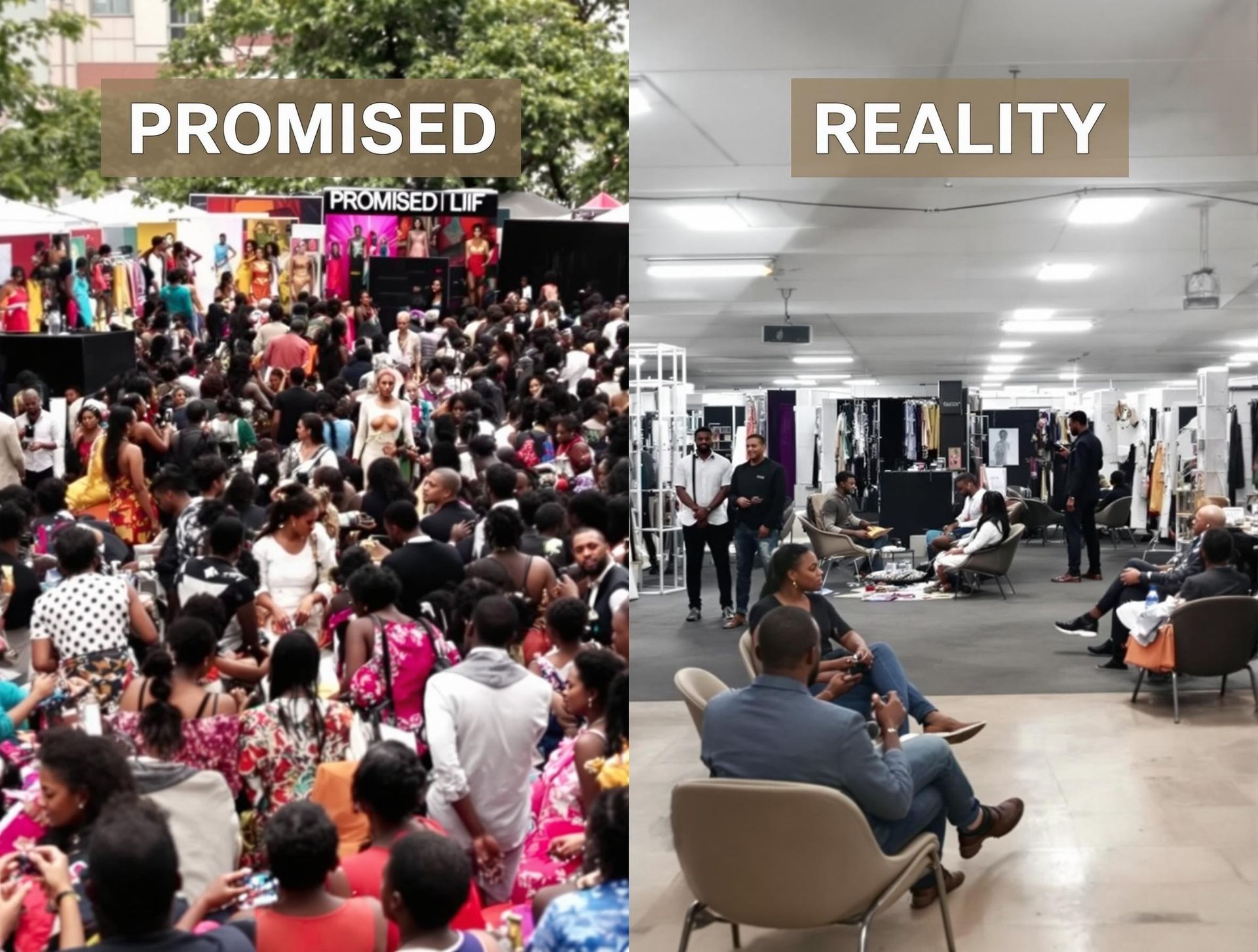
And don’t even get me started on events. Nairobi’s calendar is full. Every other weekend there’s a launch, a pop-up, a showcase. But behind these events? There’s a silent sacrifice. Vendors lose money. Promises go unmet. Organisers ghost you after taking your cash. Advertising an event isn’t rocket science. If you promote it properly and deliver what you said you would, people will show up, and they’ll come back. But trust? Trust is fragile. And in this city, it’s being broken left and right.
We need accountability. Contracts for event organisers. Refunds when things flop. Transparency when changes are made. Let’s move past “you know how Nairobi is” and start demanding better.
Lack Of Integrity
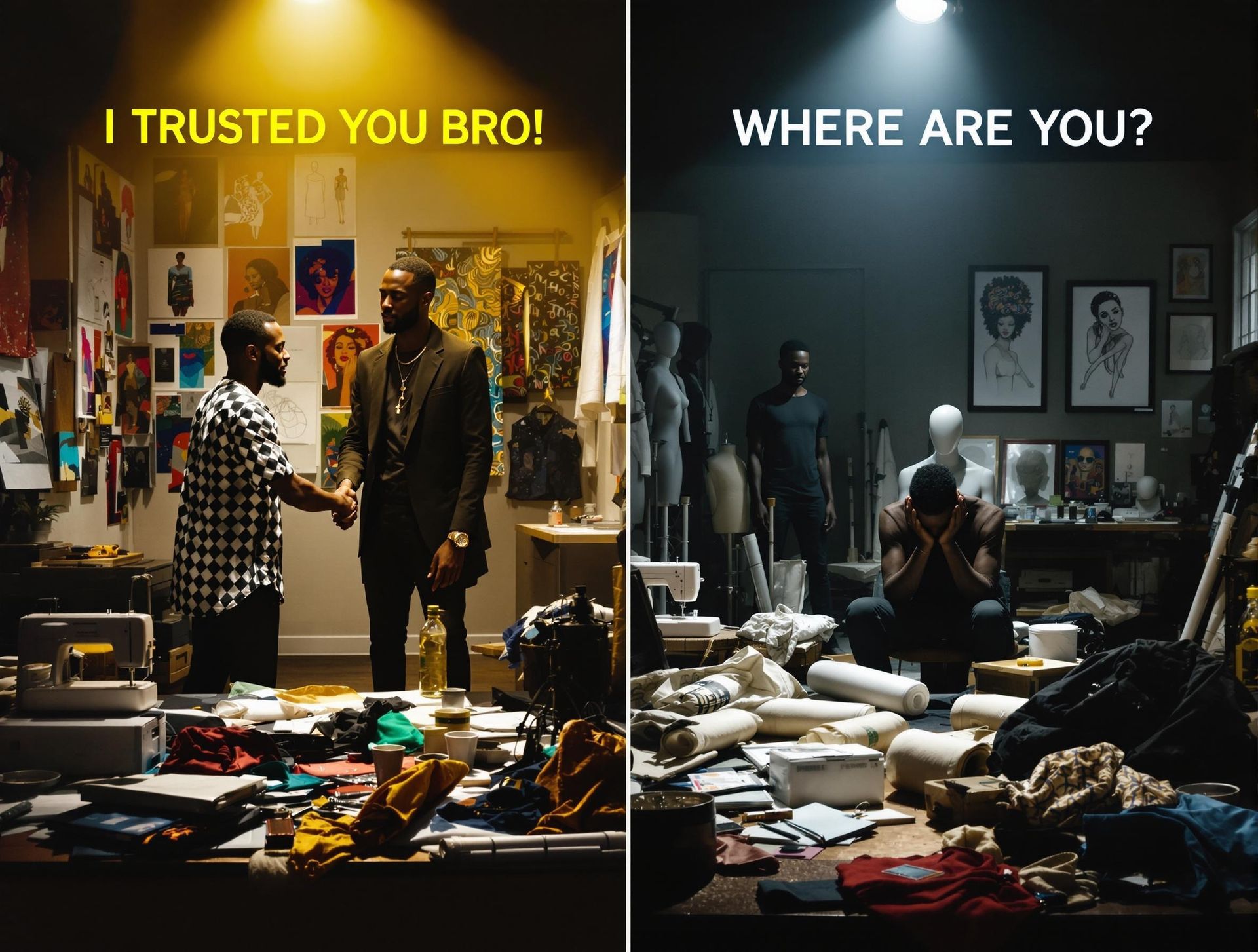
Speaking of trust... let’s talk about the handshake culture. The “bro, I got you” and “you scratch my back, I’ll scratch yours” kind of agreements. They sound good. Until they don’t. Until the camera’s off, the real work begins, and suddenly your “collaborator” is too busy to reply. You invest your time, and your money, they vanish. No deliverables. No updates.
Let’s be real: investing in some creatives with or without contracts is like forgetting your phone in a matatu. Honestly? You just have to let it go, Elsa style. Because more often than not, it’s gone for good. This needs to be said loudly: business without integrity is not a viable ecosystem.
Trust matters. But without integrity, it’s just air in a bag of Urban Bites, looks full, but you’re left hungrier.
What is our unlucky number 7?
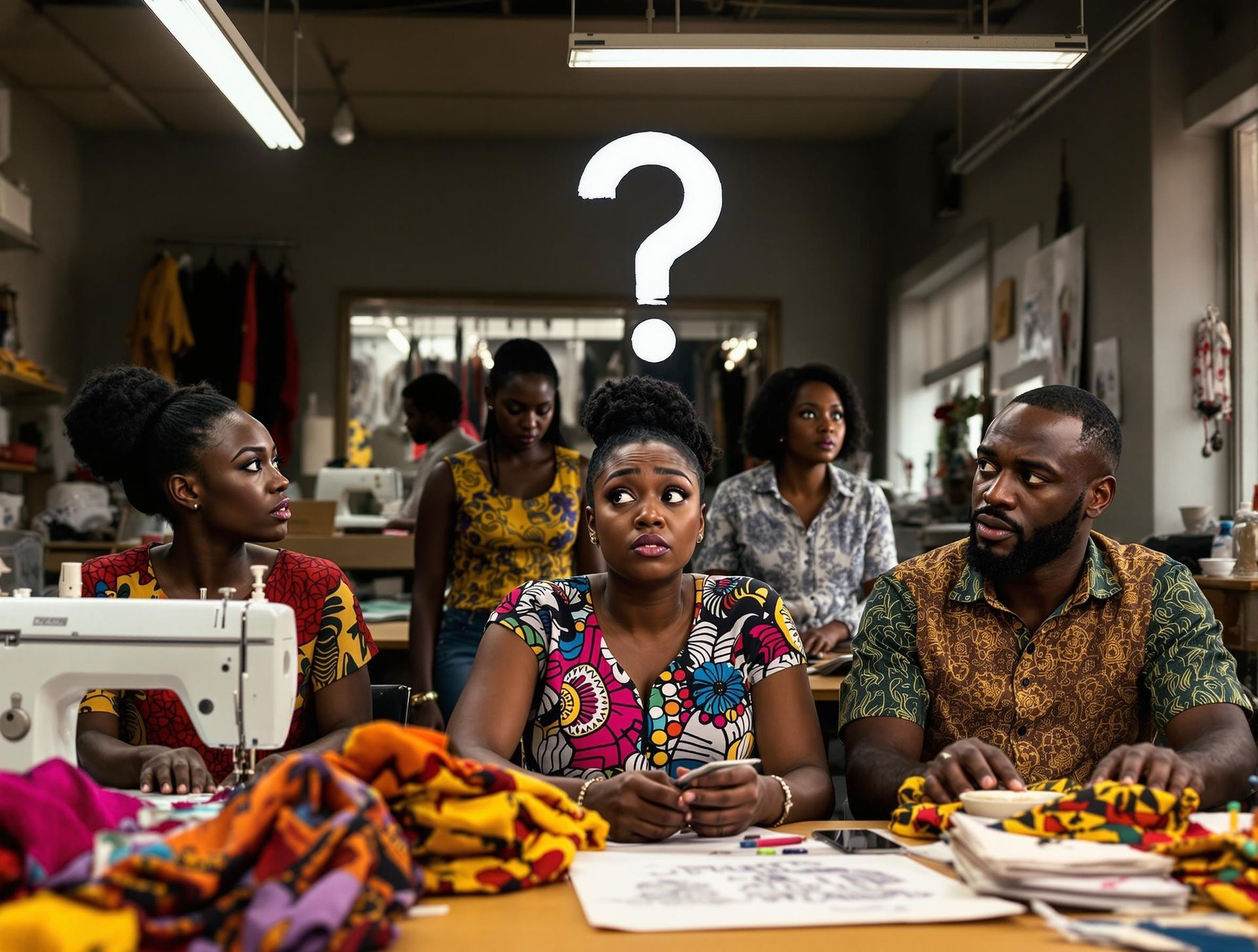
In your opinion… what’s the final and worst sin of Kenya’s fashion ecosystem? 👀🇰🇪
Is it gatekeeping? Copy-paste designs? Clout over craft? or perhaps...
We want the raw, honest truth.
🗣️ Drop your take in the comments!! The most powerful theme will inspire a full AfriHue feature article.
Let’s talk about it. ⚡
#AfriHueTalks #KenyanFashionTruths #FashionReformKE #CreativeVoicesKE